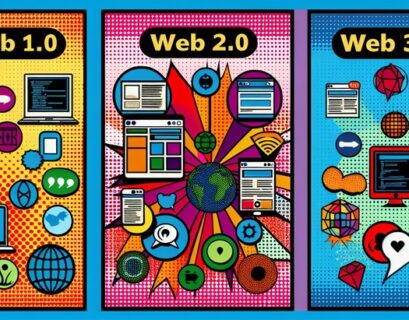Estimated reading time: 4 minutes
Introduction
Imagine a world where you don’t need a bank to send money to someone across the globe. Thanks to blockchain technology, this idea is no longer just a dream—it’s becoming a reality. As a STEM student interested in science, technology, engineering, and mathematics, understanding how blockchain works and why it’s important can open doors to exciting career opportunities in the future.
In this article, we’ll explore what blockchain is, how it’s reshaping the financial sector, and why it matters for students like you. Let’s dive in!

What is Blockchain?
Blockchain is a technology that allows people to make secure, transparent, and tamper-proof transactions without relying on a middleman, like a bank. Instead of depending on a central authority, blockchain uses distributed ledger technology (DLT). Different computers, known as nodes, store multiple copies of the same record.
This distributed nature makes blockchain incredibly secure and difficult to hack. For more on the fundamentals of blockchain, visit Blockchain Basics.
Why is Blockchain Important?
Blockchain technology is already disrupting industries, from healthcare to gaming, but its biggest impact so far has been in finance. It promises faster, cheaper, and more secure ways to handle money, eliminating the need for intermediaries like banks and clearinghouses.
How Does Blockchain Work?
Each block records a transaction. After verification, the system adds it to a chain of previous blocks, forming a blockchain. This method ensures that the system secures every transaction and prevents changes. To learn more about blockchain’s mechanics, visit Blockchain Explained.
Blockchain’s Impact on the Financial Sector
Blockchain is already transforming the financial sector in several ways. Let’s explore how it’s making a difference.
Reducing Transaction Fees
One of the biggest advantages of blockchain in finance is its ability to reduce or eliminate transaction fees. Traditional banking and money transfer services often charge high fees, especially for international transfers. Blockchain technology enables peer-to-peer (P2P) transactions, cutting out the middleman and reducing costs.
Speeding Up Payments
When you make a payment through a bank, it can take days for the transaction to be processed. Blockchain, on the other hand, allows for instantaneous transactions. This is particularly useful for cross-border payments, where traditional banking systems are slow and inefficient.
Enhancing Security
Every time a transaction occurs on the blockchain, it’s encrypted and verified by multiple nodes. This makes blockchain nearly impossible to hack. Financial institutions are increasingly adopting blockchain to enhance data security and protect against fraud.
Why Blockchain Matters for STEM Students
As a STEM student, learning about blockchain can set you up for exciting career paths in fields like computer science, engineering, and even economics. Here’s why you should pay attention.

Future Career Opportunities
The rise of blockchain has created new job roles, such as blockchain developers and cryptocurrency analysts. Understanding this technology will give you a competitive edge in the job market. Companies in finance, healthcare, and government are looking for skilled professionals who can work with blockchain.
Encouraging Innovation
Blockchain is a relatively new technology, and its full potential is still being discovered. As a student interested in STEM, you have the opportunity to contribute to groundbreaking innovations, from digital currencies like Bitcoin to decentralized applications (dApps).
Real-World Applications
Blockchain isn’t just a buzzword—it’s already being used in the real world. Companies like Visa, Mastercard, and even governments are adopting blockchain for secure and efficient payment processing. You can explore these real-world blockchain applications to understand how it’s being used today.
Ethical Considerations
Although blockchain offers many benefits, it raises questions about privacy and regulation. As innovators of tomorrow, STEM students like you will play a crucial role in addressing these challenges and ensuring responsible use of blockchain.
Conclusion
Blockchain is revolutionizing the financial sector by making transactions faster, more secure, and cheaper. As a STEM student, mastering blockchain technology opens exciting career opportunities and empowers you to shape the future of finance. Whether you focus on coding, engineering, or business, blockchain continues to shape the future as a game-changing technology.
Explore more about blockchain and other tech innovations and stay ahead of the curve. For more intriguing insights into other STEM-related topics, visit ENTECH Online. Explore our digital magazine dedicated to inspiring teenagers and young adults to pursue their passions in science, technology, engineering, and mathematics.








